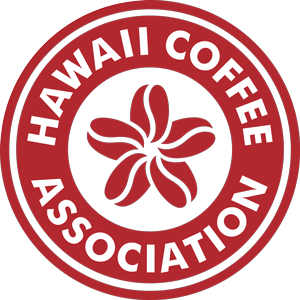As the only state that produces coffee, including the iconic Kona variety, Hawaii growers and agricultural officials were alarmed when coffee leaf rust began spreading rapidly through the Islands.
The devastating plant fungus, which reduces yields and harms coffee trees by attacking the plant’s leaves, was first detected on the islands of Maui and Hawaii in 2020. It has since been found on Oahu, Lanai, Kauai and Molokai. A collaborative effort was quickly mobilized in response to the widening threat.
“We were in the process of preparing for CLR [coffee leaf rust], but it wasn’t the top priority,” said Christopher Manfredi, executive director of the Hawaii Coffee Association (HCA). “Now it is. “
The partnership — led by the Synergistic Hawaii Agriculture Council (SHAC), with funding from the Foundation for Food & Agriculture Research’s (FFAR) Rapid Outcomes from Agricultural Research (ROAR) program — is pursuing a multi-pronged response to coffee leaf rust (CLR), which annually causes $3 billion in damages worldwide.
There’s a lot at stake. Hawaii’s unroasted coffee industry is valued at $113.01 million annually and engages some 1,500 farms on 10,000 acres across the state. Most are family-run and smaller than two acres. Many more people depend on the industry for their livelihood, which also generates revenues from increased tourism and related businesses.
“Numbers don’t do a good job of talking about the deep, 200-year heritage of coffee in Hawaii,” said Suzanne Shriner, director of SHAC. “The potential losses of income to growers are severe, but it also jeopardizes an entire community built around coffee. The Kona region of Hawaii is a mecca for visitors doing farm tours, local shops selling coffee and all the ancillary jobs and attractions that stem from the lure of the coffee bean.”
Growers are already feeling the effects as the disease causes defoliation that can cut yields by up to 70 percent and significantly increase production costs. In response, many farmers have increased their prices for unroasted coffee by $1.50 to $3 per pound. The “downstream economic impact” is estimated at about $231.67 million for the 2021-22 season.
“Our growers are desperate for a solution to CLR,” Shriner said. “The FFAR grant allowed the researchers and extension to quickly deploy answers to the most basic questions of this disease. As our learning curve grows, it’s built on the base of the joint funding of FFAR and our community partners who matched the funds.” They include the HCA, Maui Coffee Association and Hawaii Coffee Growers Association.
The FFAR genetics research is being carried out by Dr. Catherine Aime, a Purdue University professor who is the only academic mycologist in the nation broadly specializing in fungi that cause rust diseases.
Continue reading...
